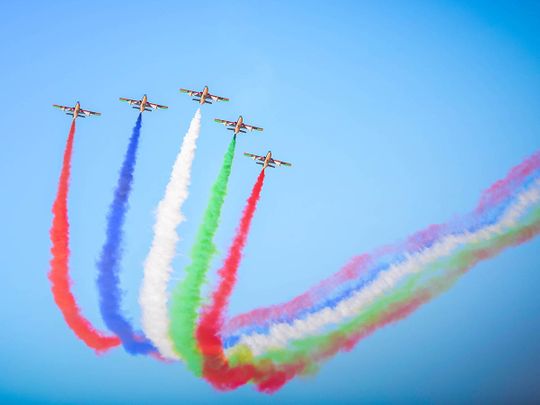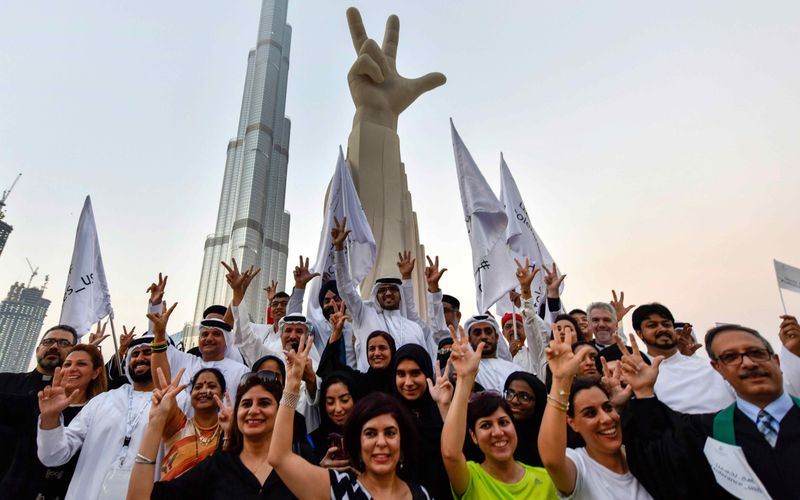
Today the United Arab Emirates marks its 52nd Union Day. The journey of the UAE as a nation is remarkable, one that goes beyond its skylines and surpasses the success of its economic endeavours.
At the heart of the UAE’s journey lies a profound commitment to tolerance and pluralism, principles that have not only shaped the nation’s identity but have also positioned it as a global exemplar of harmonious coexistence.
As we reflect on this milestone, exploring the transformative initiatives led by the nation’s leadership in fostering tolerance and diversity within the society becomes imperative.
Historical Foundations: Unity in Diversity
The visionary leadership of the late Sheikh Zayed bin Sultan Al Nahyan laid the groundwork for the UAE’s commitment to unity amid diversity. The unification of seven emirates on Dec. 2, 1971, under Sheikh Zayed’s leadership, was not merely a geographical grouping; instead, it was a commitment by the country’s founders to create a society where various ethnicities, cultures, and religions could coexist harmoniously.
As the late Sheikh Zayed’s legacy endures, the UAE has continued fostering an environment where diversity is celebrated. This commitment is reflected in the nation’s cultural fabric, where people from diverse backgrounds have been living harmoniously and contributing to the rich tapestry of this country.

Government Initiatives: Pioneering Tolerance
The UAE government has taken significant strides in institutionalising and promoting tolerance and pluralism in recent years. Notable among these initiatives is the Abrahamic Family House, a landmark project located on the Saadiyat Island in Abu Dhabi.
This unique complex brings together a mosque, a church, and a synagogue, symbolising the harmonious coexistence of Islam, Christianity, and Judaism. The Abrahamic Family House stands as a testament to the UAE’s commitment to fostering interfaith dialogue and understanding.
The Ministry of Tolerance and Coexistence
Establishing the Ministry of Tolerance and Coexistence in 2016 marked a significant milestone in the UAE’s journey toward creating an inclusive and tolerant society. The Ministry, led by Sheikh Nahayan Mabarak Al Nahyan, is pivotal in developing policies and initiatives that promote tolerance, acceptance, and understanding among diverse communities.
One of the key initiatives of the Ministry of Tolerance and Coexistence was the Tolerance Charter. This document outlines the principles of tolerance and acceptance that the UAE seeks to instill in its society. The charter was designed to serve as a guiding framework for fostering a culture of tolerance within the nation by emphasising the importance of empathy, understanding, and open-mindedness.

The UAE’s Diplomatic Approach to Harmony
The UAE’s commitment to harmony and tolerance extends beyond its borders, manifesting in its diplomatic endeavours. The nation’s diplomatic missions actively promote interfaith dialogue and understanding, reinforcing that tolerance is not limited to domestic policies but is a guiding principle in international relations.
On June 15, 2023, a landmark resolution was adopted by the United Nations Security Council, jointly written by the UAE and the United Kingdom. This historic resolution focuses on tolerance and its vital role in international peace and security. It marks a significant milestone as it acknowledges, for the first time, the contribution of hate speech and extremism to the outbreak, escalation, and recurrence of conflicts.
The resolution emphasises the importance of publicly condemning violence, hate speech, and extremism. It calls upon all relevant stakeholders, including religious and community leaders, media outlets, and social media platforms, to address and counteract hate speech and extremism that fuel armed conflicts.
Happiness Ministry: A Unique Approach to Well-being
From housing the world’s tallest building, Burj Khalifa, to hosting the COP28, the UAE has established itself as a strong economic, sustainability and cultural hub.
In 2016, the UAE became the first country in the world to establish a Ministry of Happiness. The Ministry focuses on creating policies and programmes that contribute to the overall happiness and well-being of the nation’s residents. Happiness, in the UAE’s perspective, goes beyond individual contentment; it is intricately linked to the collective harmony derived from a tolerant and inclusive society.
The happiness agenda aligns with the UAE’s broader vision of creating a society where people from all walks of life can thrive, irrespective of their cultural or religious backgrounds. By intertwining the principles of tolerance with the pursuit of happiness, the UAE exemplifies a holistic approach to societal well-being.
The UAE’s Enduring Legacy of Tolerance
As the UAE celebrates its 52nd Union Day, it stands as a testament to economic success and a beacon of tolerance and pluralism on the global stage.
It has effectively created platforms to bring individuals’ unique strengths and attributes to catalyse societal development.
The country’s forbearance, tolerance and appreciation of differences have become a harbinger of progress. In doing so, UAE has deeply imbibed the legacy of tolerance and love, which are the pillars of human civilisation.
Raamish Siddiqui is a lawyer, author and scholar. X: @raamishs








